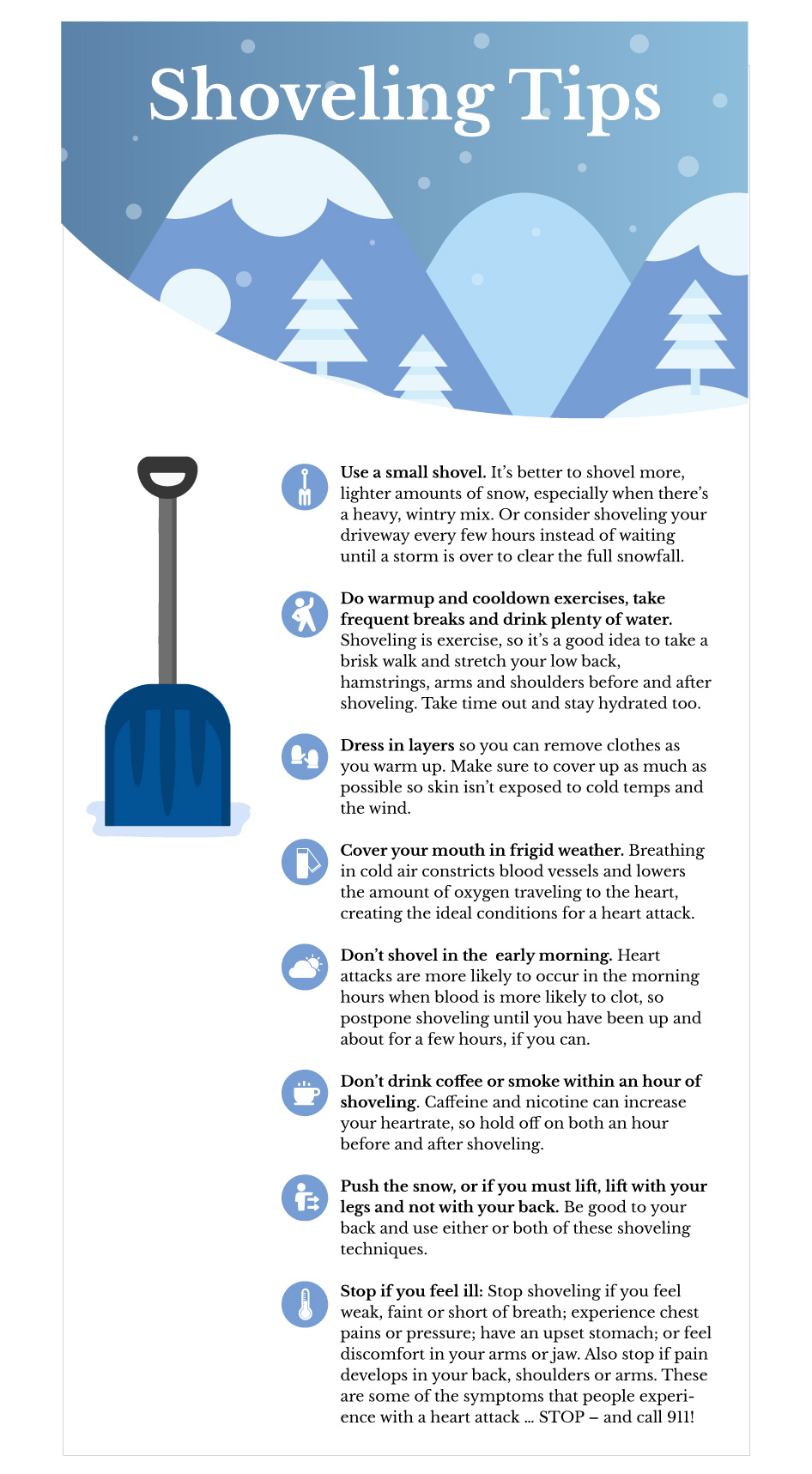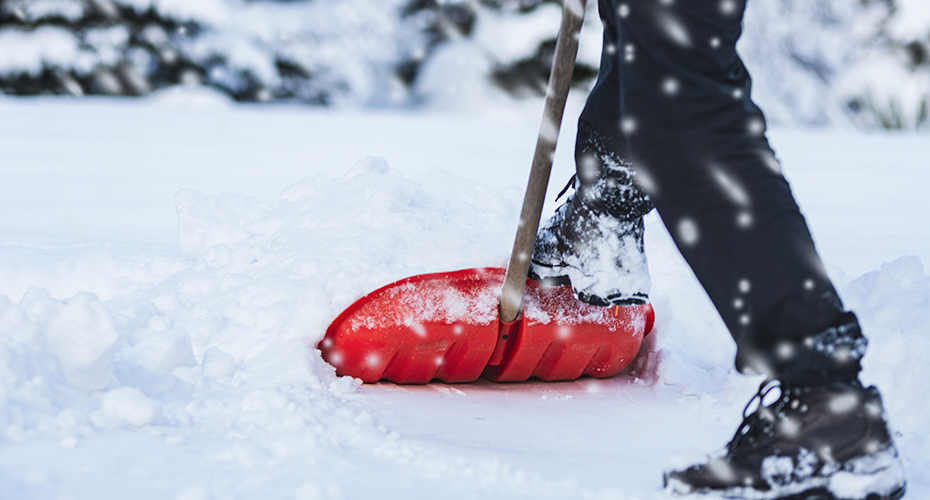Jan 22, 2024
Preventing injuries in winter weather
As late-winter storms hit much of the U.S., clinicians are urging commonsense precautions to prevent illness and injury.
In particular, snow-removal tasks like shoveling and snow blowing are prime causes of several different health conditions and injuries, explained Dr. Ashley Yeats, vice president of medical operations at Blue Cross Blue Shield of Massachusetts, and a former emergency department physician.
These include broken bones from slips and falls; strains and sprains, including back injuries, from lifting heavy snow; frostbite and hypothermia from chilly temperatures and blustery winds; and snowblower injuries like lacerations and traumatic amputations.
Perhaps the most serious and underappreciated risk, Yeats says, is acute cardiac events like heart attacks: “Snow shoveling is a pretty strenuous upper body exertion, which generally creates a more significant response in terms of increasing heart rate and blood pressure than using your legs. Studies show a clear association between snow shoveling and acute coronary events, particularly in men,” he said, adding that while most studies have focused on coronary events in men, the risk to women is real and less understood.

Yeats encourages those living in snowy climes to heed the following rule of thumb: “The act of snow shoveling is equivalent to strenuously hiking, rowing, kayaking, downhill skiing, biking at 10 miles per hour or running full-speed on a treadmill. If these are things you wouldn’t normally do, you probably should not be snow shoveling,” he says.
He added that those with asthma or back pain, men over 55, and those with other risk factors for heart disease or a heart attack, such as high blood pressure, high cholesterol, smoking or a sedentary lifestyle, as well as those with a family history of cardiovascular disease, should not be shoveling: “You really should not be shoveling snow if you fall into any of these categories,” he says, adding, “When in doubt, speak with your physician.”
Yeats also encourages folks with these risk factors to think twice before snow blowing: “Pushing a big snowblower through heavy snow is also a significant exertion.”
For those who feel they can brave the snow, Yeats offers the following tips:

Yeats says the most important snow shoveling tip might just be asking for help: “If you’re over 55, consider paying a neighborhood kid to shovel your driveway,” he says. “Your health is far more important than having the appearance of a perfect driveway.”
Did you find this article informative? All Coverage content can be reprinted for free. Read more here.
PHOTO OF Dr. ASHLEY YEATS BY MICHAEL GRIMMETT

